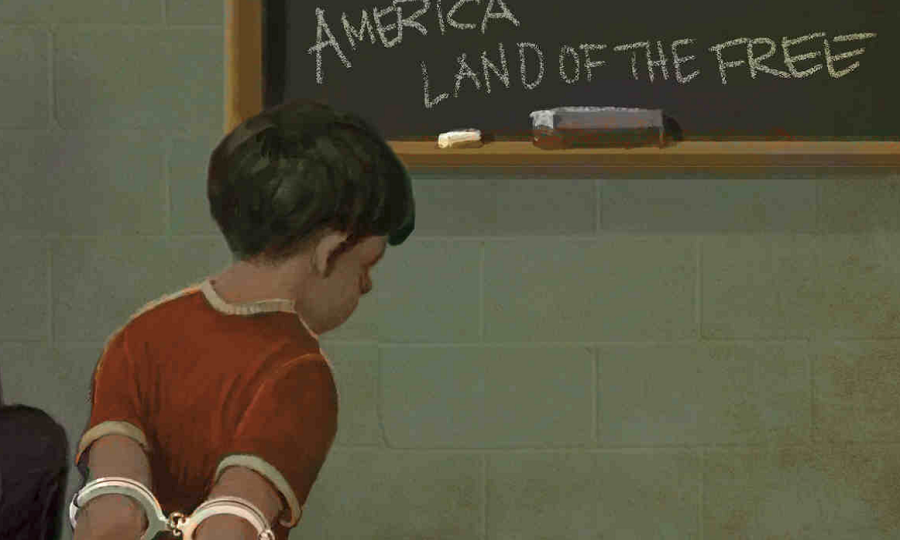Opinion: The criminalization of youth is harming our nation’s future
A recent incident in Florida involved the arrest of an 11-year-old student following claims of ‘disruption’ within the classroom. However, 11 seems incredibly young to face the justice system. This begs the question: What future are we really preparing for our youth? Are we leading our youth towards successful career paths or incarceration?
According to reports by TIME, a substitute teacher asked the Florida student to stand for the pledge of allegiance, which he refused to partake in, saying that he thought the flag was racist. This caused an argument between the teacher and student, with the involvement of the School Resource Officer and the Dean. Eventually, their response led to the subsequent arrest of the student for disrupting the classroom.
The student’s concerns about the flag stem from a history characterized by exclusion and differential access to the opportunities that our flag symbolizes and promises. This student should not have been questioned about his concerns over a flag that doesn’t aim to protect all Americans, especially considering that there is no mandate for standing for the pledge.
While this student was not arrested for his refusal to stand for the pledge, the interaction that led to him getting into trouble began with the teacher questioning his decision to not stand. The teacher should have respected this student’s right to quietly sit, rather than punish his nonconformity.
Why is it that most schools first response is to punish students rather than offer them support? Rather than strengthening support services and counseling, schools adopt ‘no tolerance’ policies and create stricter environments. Our nation isn’t investing in rigourous counselling services, but continues to help subsidize private prisons.
The “School to Prison Pipeline” is a link that shows how young people who come from disadvantaged backgrounds are often put into the trajectory of incarceration due to increased harsh punishments from schools. This impacts students of color and students who come from poverty at a disproportionate rate, leading to intergenerational struggle.
‘Zero tolerance’ policies that have become common in public schools lead to the criminalizing of minor infractions.The use of school officers to handle reports of defiance and punishments further criminalizes students and is an inappropriate response.
Often times, school officers are involved in incidents that should have been resolved between the students and school officials. Instead of getting to the root of the issue and helping these students, they are punished and sometimes even physically assaulted in the school officer’s process of intervention or arrest.
Youth are being criminalized and brutalized at younger ages, with stories like Trayvon Martin sadly becoming common for youth of color. The way our schools and justice system are treating troubled youth only exacerbates the very issues that cause delinquency in the first place. The first response is always punish and arrest rather than offering support where needed and creating restorative justice.
If we continue adopt policies that aim to harm youth rather than heal, more students will be put on the path of defiance and later prison. We need to stop criminalizing youth behaviors and take actions to aim towards policies that uplift and support our youth regardless of background.




